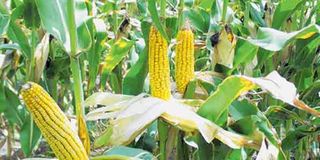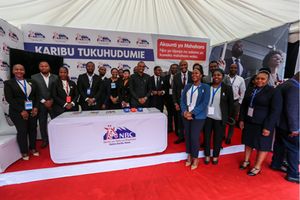Two regions prepare to implement ASDP II

What you need to know:
- Former Iringa Regional Administrative Secretary Wamoja Ayoub told BusinessWeek in an interview that the objective of the programme is to create a sustainable agricultural environment friendly for promoting food security and nutrition.
Dar es Salaam. Kagera and Iringa regions have started preliminary activities to start the implementation of the second phase of the Agriculture Sector Development Programme (ASDP II) launched by President John Magufuli in June, this year.
Former Iringa Regional Administrative Secretary Wamoja Ayoub told BusinessWeek in an interview that the objective of the programme is to create a sustainable agricultural environment friendly for promoting food security and nutrition.
Iringa being one of the country’s food basket regions, Ms Wamoja said the aim of ASDP II activities is to improve agricultural productivity while boosting farmer incomes.
She said Iringa Region’s participation in implementing ASDP II will involve improvement of productivity; add value to agricultural produces and securing markets for livestock, crops and fish.
She said through Southern Africa Growth Corridor of Tanzania (SAGCOT), various activities have been going on including education to farmers on good farming methods and proper use of land.
According to her, irrigation farming is one of the top priorities in implementing ASDP II to boost yields, as those who are currently farming using seasonal rains realise lower harvests and are unable to ensure food security and income.
However, she said Climate Change had remained a major challenge in the development of agriculture as drought seemed to last longer than usual, a situation that was affecting crops.
However, she said low financial resources among farmers to improve their farming practices such as buying fertilisers and good seeds also affected the production of crops. Ms Wamoja said the regional authority was working with the Tanzania Agriculture Development Bank (TADB) to provide financial support to farmers’ groups in the region.
Kagera Regional Administrative Secretary (RAS) Diwani Athumani said the regional priorities on ASDP II were listed under national priorities.
“As you are aware the current government of President John Magufuli is committed to bringing development to its people,” he said.
‘As the regional government, we believe that the support from the government and development partners, including AGRA, will have a major impact on the people’s economy,” he said.
He said the regional authority had formed a special team of experts to make sure that they coordinated the implementation of the ASDP II at the regional level.
He mentioned challenges such as Climate Change, low budgets, the acceptance of the idea by farmers and lack of expertise.
ASDP coordinator at the ministry of Agriculture January Kayumbe told BusinessWeek that development partners were necessary in the journey to revolutionize agriculture, as part of the country’s path towards middle income status in less than a decade.
“Development partners are very crucial and they will help us to to get things moving,” he said. “With the scarce resources we have, we appreciate the efforts made by them including Alliance for Green Revolution in Africa (AGRA),” he said.
Mr Kayumbe said ASDP II was aimed at transforming crops, livestock and fishing to meet the objectives of Vision 2025 that will enable Tanzania to become a middle income country.
“We have prioritised agricultural commodities value chain, which covers a lot on production to marketing, and includes exports to neighbouring countries,” he told BusinessWeek in an interview at the ministry of Agriculture offices.
He said the role of development partners on ASDP II will be to share expertise, planning and policy review.
He said the programme covers six ministries, which will be responsible for policy support as well as creating a good business environment in agriculture, fishing and livestock.
He noted that the role of the government will be to improve infrastructure including communication, transport and energy.




